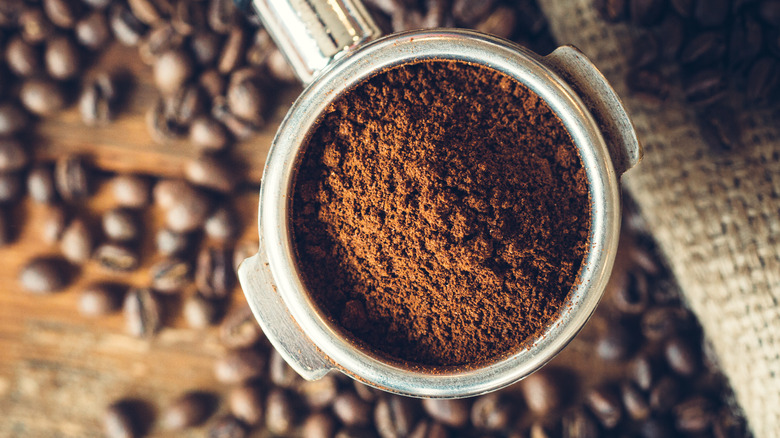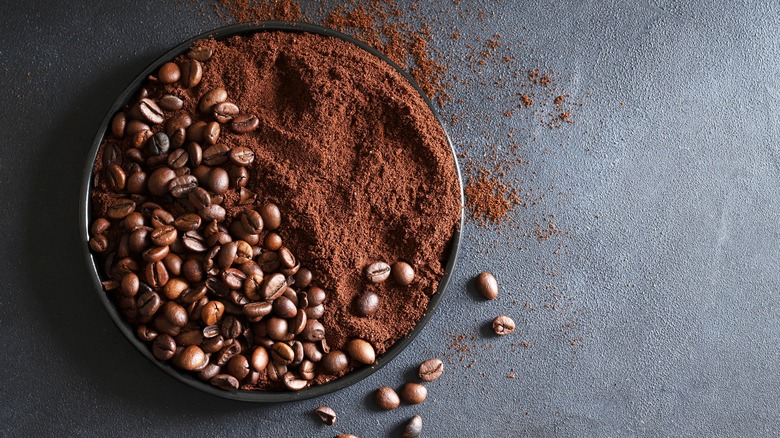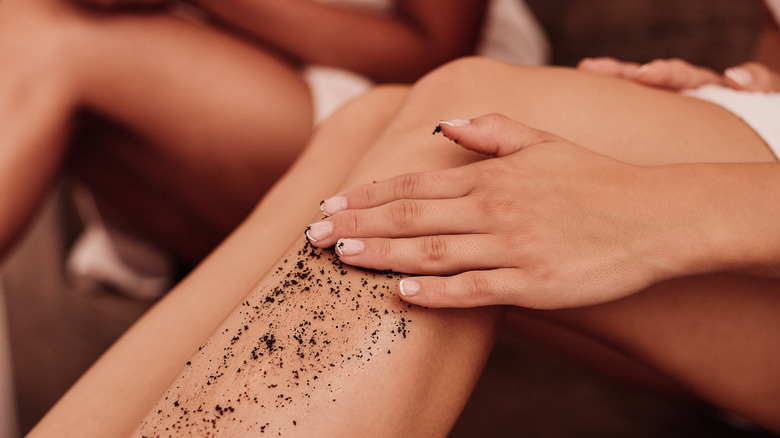Why You Should Never Wash Coffee Grounds Down The Drain
With its invigorating aroma and complex flavors, coffee has united people worldwide in their love for this renowned and sacred beverage. Coffee's appeal lies not only in its ability to caffeinate and prepare people for the day, but also in the variety of flavors present in each sip. There are countless types of coffee beans and roasts, each with its own unique taste, ranging from bitter to acidic to sweet, all holding a place in the realm of java.
According to a 2023 survey by Drive Research, which included more than 1,500 participants across the U.S., approximately 74% of Americans drink coffee every day. This popularity explains why many invest in home coffee makers and equipment. As you might imagine, the vast amount of coffee consumed leads to significant quantities of used coffee grounds. While it may be tempting to dispose of these grounds by pouring them down the kitchen sink, this practice can lead to plumbing problems. Coffee grounds can accumulate in drains over time, causing blockages.
Coffee grounds can cause clogs
Sure, used coffee grounds may seem harmless to a sink drain, but this is far from the truth. When combined with water, coffee grounds can clump together, creating serious trouble for your pipes. Even if you have a garbage disposal, it's still advisable to avoid dumping coffee grounds down the sink. Although garbage disposals can make short work of food scraps, they can't prevent coffee grounds from clumping up and clogging the system.
Not only can coffee grounds block your plumbing — causing your sink to drain slowly, or not at all — but they can also create a foul smell. This odor arises as the clump of grounds traps any rotting food or grease passing through it. If your sink encounters issues after disposing of coffee grounds in it, you might even need to hire a professional for repairs. To avoid these problems, you're much better off simply tossing coffee grounds in the garbage.
What to do with old coffee grounds
The trash can is a perfectly suitable place for old coffee grounds, but if you're feeling inventive, there are other ways to utilize them. Coffee grounds contain minerals such as nitrogen, iron, and calcium — according to Healthline, this makes them excellent fertilizers. You can easily sprinkle them over soil that needs a boost, or add them to a compost pile. Additionally, coffee grounds have natural pest-repelling properties, so using them around plants can protect against flies, mosquitos, and slugs.
Beyond aiding your garden, coffee grounds also make for great cleaning agents. Due to their coarse texture, you can use coffee grounds to clean your pots and pans. They also act as a natural abrasive, capable of removing grime from countertops, sinks, and even your skin. To create a coffee ground exfoliant, simply mix the grounds with water or coconut oil before applying them to your body. In either case, still be sure not to let the grounds go down your sink by using a drain catch with a coffee filter inside. Also, instead of washing the exfoliant off down your drain, wipe it off your body or the surface you're cleaning with a warm wet rag or a disposable towel. The next time you have a surplus of used coffee grounds, you'll know how to reuse them, but make sure you toss them in the trash, rather than pouring them down the drain.


